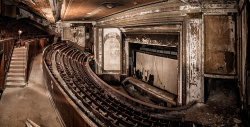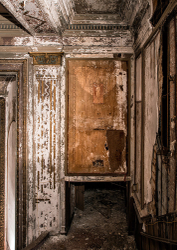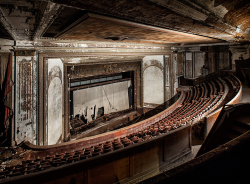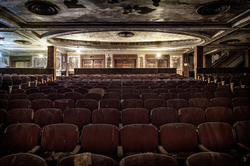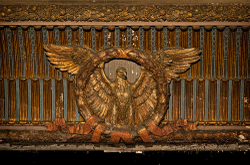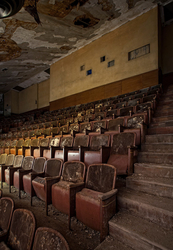The Victory Theatre
Updated April 20, 2022 | By Matthew Christopher
Envisioned in 1912 to accommodate 1,600 patrons, the Victory Theatre was designed by architects Mowell & Brown for the Goldstein Brothers Amusement Company. It opened its doors to the public on December 30, 1920 with a gala event featuring singing vaudeville acts and the “Super-Photoplay ‘The Furnace’” directed by William Desmond Taylor. All proceeds from the day were donated to the city hospital and House of Providence Hospital. The Goldsteins had made their fortune through nickelodeons, which were small neighborhood theaters showing films in storefronts, and the Victory Theatre was their entry into the big leagues. Named after the recent Allied victory in World War I, not only was the Victory the last theater built in Holyoke, it was also one of the finest. Patrons could watch both a silent show and a performance onstage for the price of a single ticket in the 1920s, and both were accompanied by the music of the Victory Symphony Orchestra. The theater had an art deco update in 1939, and was converted to a movie theater following a restoration after a fire in 1942. By the late 1950s and early 1960s, the town’s silk and paper manufacturing industries were migrating to southern states and would eventually leave the United States for places like Korea and China.
Holyoke’s slide into poverty hit the town’s economy like the wrecking ball destroying many of its most beautiful buildings. The third generation owners of industries left the town too, and with few cultural institutions like universities or museums to buffer Holyoke’s funds, the impact on the remaining residents was severe. In the space of a few short decades the city became one of the poorest in the country. Victory became a first run movie theater only. By 1979 it could no longer limp along in a city now incapable of supporting it and closed, just another decaying reminder of defunct successes in a town full of them.
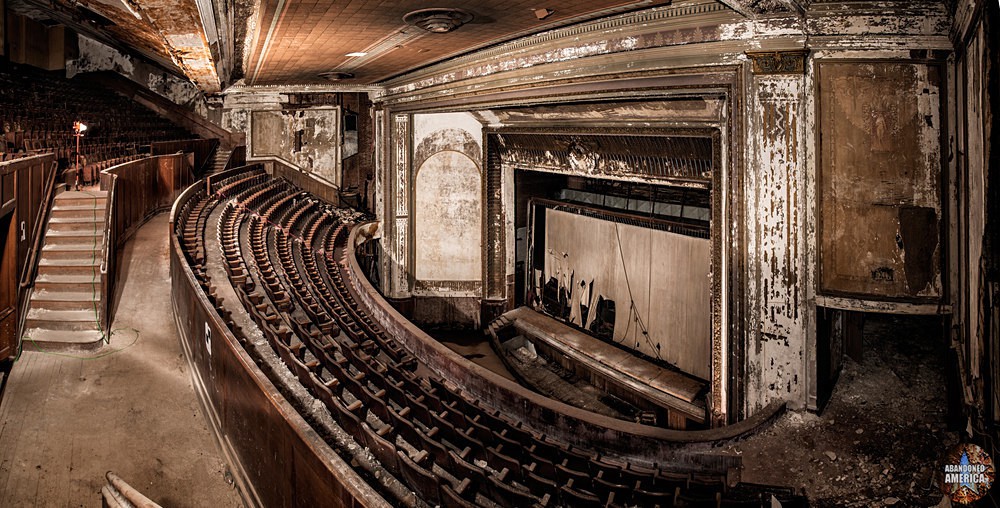
A panorama of the Victory Theatre in Holyoke, MA shows the graceful sweep of the balcony.
After the Victory closed it was seized by the city for unpaid taxes; many other Holyoke properties had been as well. The Massachusetts International Festival of the Arts (MIFA), which moved to Holyoke in 2005, saw the building as an opportunity to bring the arts back to the valley, and in doing so create jobs and an incentive for people to visit the city’s downtown. The process of acquiring the theater wasn’t an easy one; while the city rented the structure to MIFA from 2007-2009, there was talk that it might be demolished. Don Sanders, MIFA’s executive artistic director, went before the Holyoke City Council and implored them to give MIFA a chance to show them the building could be saved. After going through a proposal process and nixing other ideas including converting the theater to a church or gentleman’s club, the theater was sold to MIFA in 2009 for $1,500 under a reverter clause which allows the city to resume ownership if progress benchmarks are not met. To celebrate, MIFA hung a huge banner on the front of the building that crowed, “Victory Is Ours!”
The project is estimated to cost $43 million – and the construction itself will be a herculean task. “It's a total gut renovation,” Sanders explained. “Everything that's in there gets taken out and put back with new materials but exactly the way it was so the complete historic character of the theater is kept intact. The scale of the project is one of the reasons it has taken so long: the whole building had to be gone through with a fine tooth comb. Models and drawings were made of the decorative details. Each layer, from 1979 back to 1920, had to be researched and cataloged. It was an amazing process.” He also told me about some of the work they’ve done so far, and what it’s uncovered: “Underneath the cloth on the wall we found two successive layers of pure silk fabric lining, one from 1941 in green, and one in red that was from perhaps 1923-24. The silk was as thick as a rug. We surmise that it is Skinner silk from the silk mills of Holyoke. That was very exciting to have that sort of personal connection. We were able to save some of that and what can't be saved we'll have rewoven. There were two murals on either side of the proscenium that were by a very famous WPA artist, Vincent Maragliotti, and those were taken down and are being restored.”
As of July, 2019 MIFA has secured significant state and private funding, and has begun work on environmental testing and roof repair. It is slated to reopen on December 20, 2020 - a century after it originally opened to the public. If successful, it will be a beacon of hope and a tremendous help in drawing visitors and businesses back into downtown Holyoke - truly, a victory for the community.
👉 Join Abandoned America on Patreon for high quality photos & exclusive content
👉 Make a one-time donation to help keep the project going
👉 Listen to the new Abandoned America podcast
👉 Subscribe to our mailing list for news and updates

